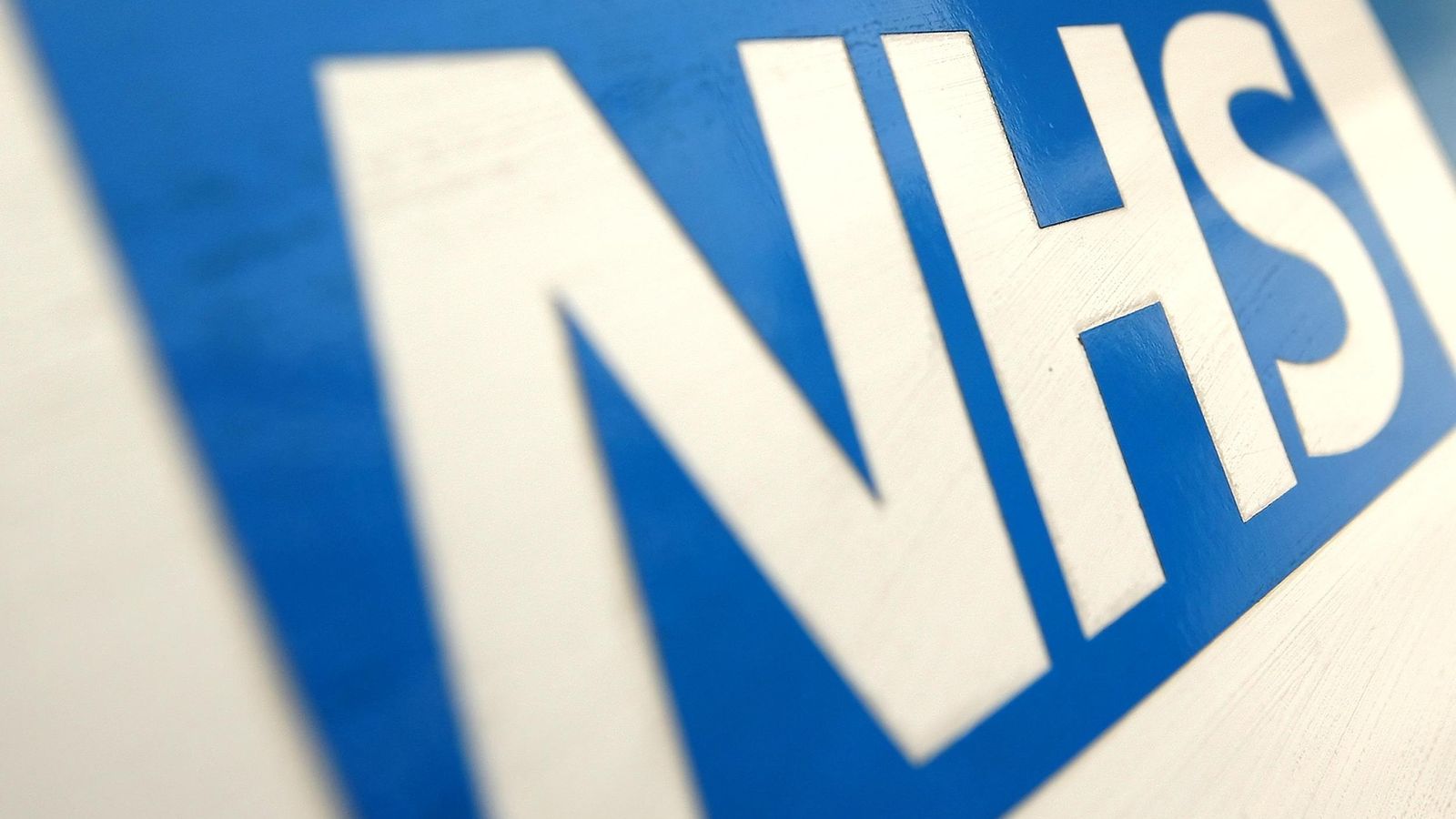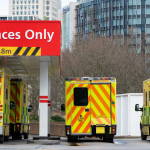The number of people in England waiting to start hospital treatment has risen to a new record high, according to latest figures.
A total of 4.95 million people were waiting to start treatment at the end of March 2021, according to NHS England – the highest number since records began in August 2007.
The number of people having to wait more than 52 weeks to start hospital treatment stood at 436,127 in March 2021, the most for any calendar month since August 2007, when the figure stood at 578,682.
In March 2020, the number having to wait more than 52 weeks to start treatment stood at just 3,097.
Live COVID updates from UK and around world
It comes as health leaders have called for a review of social distancing rules across the NHS to help tackle the waiting list backlog.
A letter from them to Health Secretary Matt Hancock, asked for increased investment so the NHS can grasp a “summer of opportunity” and ramp up their ability to see as many patients as possible in the next few months.
NHS England said the health service had seen almost a quarter of a million people with suspected cancer in March as services “began to bounce back” after the peak of the winter COVID-19 wave.
More than 230,000 people were checked in March even though 12,000 seriously ill patients with COVID required hospital treatment, it said.
Analysis: Under pressure
By Ashish Joshi, health correspondent
Every month it’s a record figure – and that is to be expected. The NHS can’t make a waiting list of millions of patients disappear in a few weeks or months.
The question is, how long to clear this backlog?
The NHS has announced a £160 million investment into new accelerator clinics – a fast-track treatment initiative that it says will “offer high-volume cataract service, one-stop testing facilities, greater access to specialist advice for GPs and pop-up clinics so patients can be seen and discharged closer to home”.
It will certainly help and should make a dent in the figures.
But there are almost five million people waiting for hospital treatment and with A&E attendances almost at pre-pandemic levels and GPs seeing rising numbers both in their surgeries and over-the-phone, it probably means the numbers will keep rising.
Some people are only now accessing health care for the first time since the start of the pandemic and we know mental health is already a huge issue.
Hospitals are stretched.
They have to continue to operate with social distancing measures in place and strict infection control guidelines. That means capacity is greatly reduced.
All of this, before we even begin to consider the needs of an exhausted, traumatised workforce.
That pressure is going to be felt right through the health service.
Patients who can’t see a consultant might become sicker. And they will need to keep seeing their GP until the hospital appointment comes through.






















